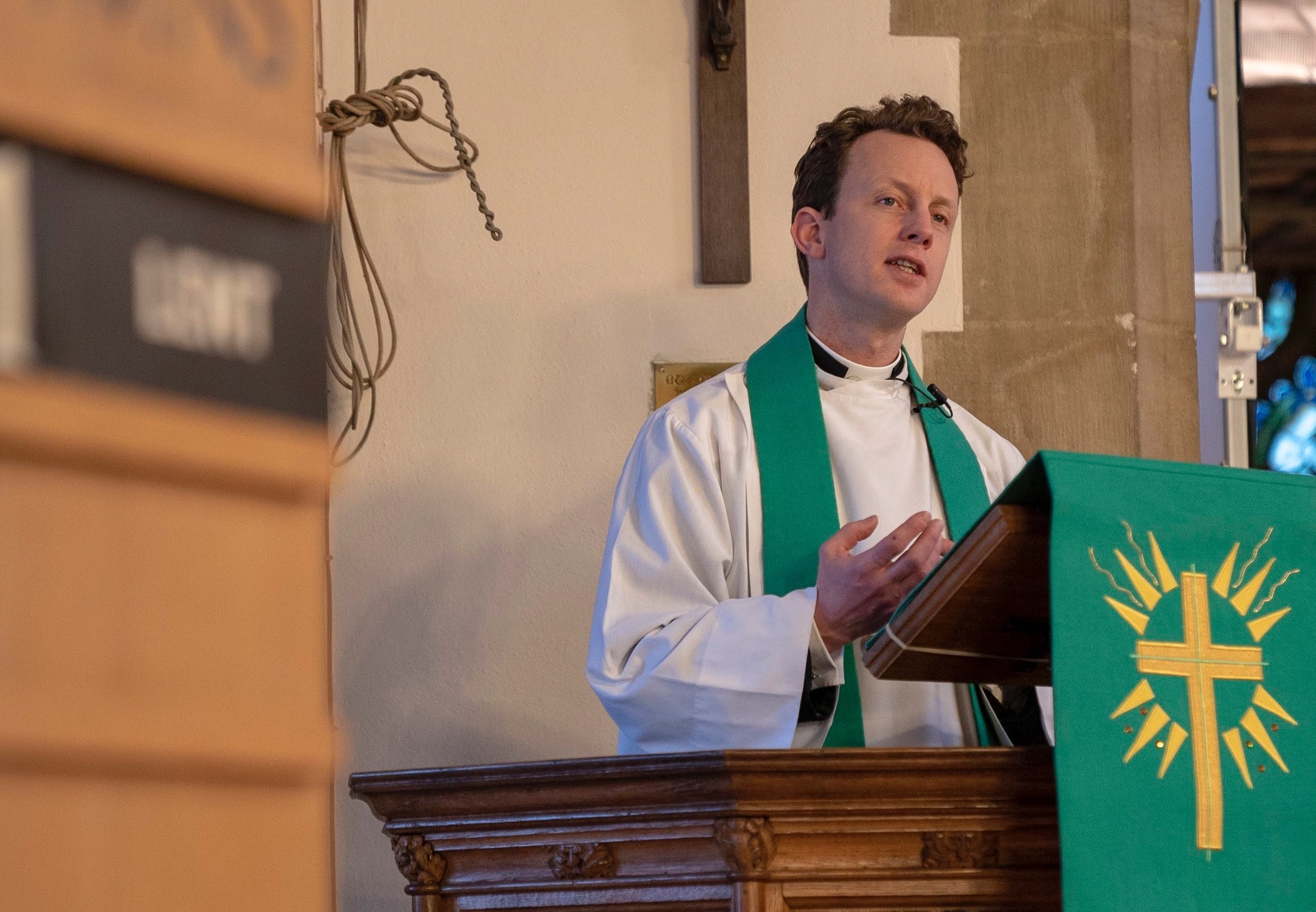Sermons
We want church to be accessible to everyone. Missed a week? Or simply want to see what church is like?
You can catch up and browse the Sunday Bible readings and sermon here.
Remembrance at Christmas
Sermon by the Revd Dr Brutus Green
Readings: Luke 2:1-12, Revelation 21:1-7
The two readings we have had tonight, effectively tell the stories of both the first and the second Coming; the first is ever familiar. You’ve most likely heard it since you were an infant. Played the different parts in the Nativity Play. Perhaps seen your children take theirs. The story is very relatable. It’s an ordinary young family. The government is once again making them register. Somethings don’t change even after 2000 years. They’re travelling at Christmas and there are the predictable difficulties. Donkey congestion and overbooked inns.
What is unusual is the nature of this child. As the second reading describes it, second time around: ‘See, the home of God is among mortals. He will dwell with them; they will be his peoples, and God himself will be with them.
Now it’s easy to write this off as mythology. To enjoy the story performed by children in a sanitised mock-stable; the quaint Victorian-ness of it all; to light the candles, sing the carols; enjoy the memories of Christmas past; with a late cup of chocolate or port, beside the Christmas tree.
Our faith, or lack of it, is all different. Our idea of who or what God is. It’s easy to assume that since we all use the same word ‘God’ we all mean the same thing. I think for many God is most easily identified with a twentieth century despot, a remote almighty power with a somewhat arbitrary use of his power over life and death. That may be why they choose not to believe in him. Others imagined a curious scientist who has wound up this complex experiment and sits observing with his clipboard the struggles of the tiny creatures. I don’t believe in this God either.
The Christmas story is that this creator is not remote at all; but that God came and dwelt among us, ‘with the poor, the mean, the lowly’. that he shared our difficulties, our frailty; in order to share with us his divinity. ‘And he feeleth for our sadness, And he shareth in our gladness.’
And the reason for all this, the point, is that God is revealed as love. Love requires vulnerability And so yes, ‘he abhors not the Virgin’s womb’; he comes as infant, ‘so tender and mild’. ‘Little weak and helpless; tears and smiles like us he knew.’ Any parent knows that vulnerability – of both parent and child. And with it the strange, powerful strength of connection. And that child in life and death was to teach and act out of love, as our childhood pattern, with the greater love that no man has than this – to lay down one’s life for one’s friends.
Christmas is the beginning of the story that puts love at the centre of the universe. Now you may call it a fairy tale and claim instead that there is no meaning to life, that the universe exploded out and will finish with every atom spread out across time and space in ever cooling nothingness. That is one way of looking at the world: that death has the victory; that the only reality is ashes to ashes and dust to dust.
Or you may choose to believe this mystery of the incarnation: that ‘ubi caritas et amor deus ibi est’; that where there is love and charity, God is there. That in the vulnerability of a child, maybe God was there. The hidden meaning of the world. And that as God shared this life, its hazards, its suffering, he made a bridge that shows us the way to the Father: ‘and he leads his children on to the place where he is gone.’
The reality of death, we know. It may have caught us by surprise once, but the reality and finality of death once known changes us. Christmas is about the reality of love. The enduring presence of our loved ones that we have felt. The hesitant knowledge that what loves and what is loved is never lost but endures eternally.
Christmas is the bridge between these worlds. The promise that we have a friend who came to us with love, who is now with those whom we love and see no more. And that ‘we too will thither, bend our joyful footsteps’, ‘With the dawn of redeeming grace’. That this child was born as our hope, not of something transient, like a new government, the latest phone to make our life a bit easier a bit more glamourous, but born to show us the way of peace and redeeming love: ‘Born that man no more may die, Born to raise the sons of earth, Born to give them second birth’. Amen.

